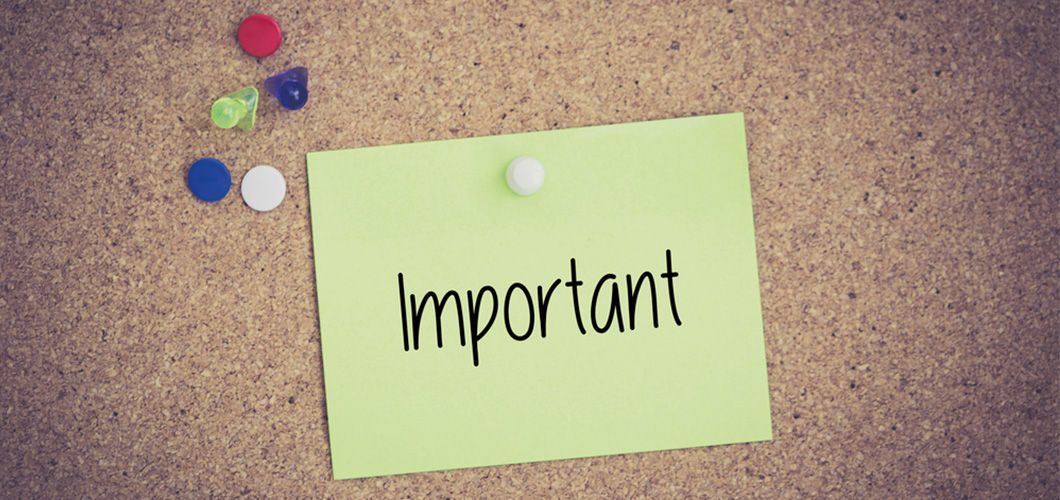8 Things You Need to Know About Grad School Before You Go

Grad school is a really exciting time because you are pursuing studies that allow you to become an expert in a field. You probably already know the basics of what’s involved in graduate education—classes, TA work, lots of research. But there is so much more that you should be aware of before you hit campus in order to make the adjustment to your new world easier.
For me, grad school is where things got real. Undergrad laid the foundation for understanding core chemistry concepts while grad school forced me to expand and mature my understanding of these concepts and their applications in real time. Beyond academics, navigating time, money, resources, relationships, and expectations is what really made going to grad school a whole new ballgame.
Here are eight essential things I wish I knew going in.
1. Get resourceful
Before you arrive (or during orientation), grad programs will refer you to various resources that are available within your department or university. Previous cohorts pass down information but you may not realize that they may be out of date. In my case, a lot of the information was out of date or not fully comprehensive of all the things that my school offered.
Try to arrive a little bit before the semester starts to review resources you are given. Then go to different departments and buildings to learn about your school’s resources firsthand. Ask questions and get recommendations for support you may need.
This is also a good time to find good studying spaces on and off campus. Outside of campus, check out your local community centers. Also find a good coffee shop, which may also double as a study spot.
2. Get a handle on student fees
Most graduate programs have student fees that are included in tuition and scheduled payments or covered by stipends. You may not realize that payment of these fees is usually required before classes start. This is where asking questions to your department (and the bursar’s office) is essential. I advise getting things in writing, or at least email, so that you have a paper trail.
Alternatively, when it comes to paying those extra fees, consider getting a side hustle or a microloan to offset expenses.
3. Maximize the value of your student status
Be sure to cash in on the obvious and not-so-obvious funding, academic, and campus resources available to you. For example, many schools charge transportation fees that pay for buses and other local transportation, so take advantage of public transportation and learn those bus routes.
Also, schools love to charge technology fees, but how many of us only visit IT when something is broken? IT departments typically have “free” (i.e., already included in those student fees you paid) software and libraries of information that you can tap into as a student. So make use of those resources.
Some other things to explore: Your library’s writing center will have helpful resources such as staff who can help with developing ideas, structuring papers, and proofreading. The university will likely have mental health counseling or crisis lines. You will also have access to the gyms and aquatic centers on campus. Exercise is a great stress reliever.
Look for a makerspace where people with shared interests can gather to work on projects while sharing ideas, equipment, and knowledge. You can often get discounted or free printing services as a student. Are there any financial wellness programs offered through your school? Don’t be shy about using any and all resources the university has!
Beyond your school, many businesses and organizations have student discounts. For example, Amazon.com offers a free 6-month Prime trial for students. Do a Google search for free or discounted resources for students.
Not all student perks are advertised, so ask other students, staff, departments, businesses, and community members to see what they know.
4. Find your community
For most people, starting grad school means you will have to relocate and basically start a new life. While you seek out resources at your school, it is also important to seek your community: friends, school family, church, mentors, advisors, and those with whom you feel safe and whom you feel you can trust.
Depending on the demographics within your department and on campus, you may need to look outside campus for your community. My personal experience was one of feeling isolated early on because most of the people in my department did not look like me or share my experiences. Negative situations with professors, peers, and staff members that were a result of biases, microaggressions, discrimination, and ignorance left me feeling exhausted and alone.
This is where finding my safety net (a collection of trusted friends, mentors, and allies) served as my safe haven for sharing my experiences. I also made it a point to connect with friends who were part of the local community, who kept me grounded and up-to-date on nonacademic things.
Yes, you will have to put in a little extra work to seek out the community, and this is where it's important to tap back into the first piece of advice. For example, I identify as a Black and Filipino student, so I made sure that I was connected with the African American community, the Asian American community, and the Diversity, Equity, and Inclusion center on campus. Through my connections from the center, I was able to attend multiple networking events, and this is where I met a lot of my friends.
Also, although my academic background is in chemistry, I also have interests in psychology and business. I took it upon myself to attend the incoming freshman mixers through other departments so that I could connect with people with interests similar to mine. I suggest attending mixers for both undergraduate and first-year graduate students. Many of the people I met and connected with are still my friends and mentees. To this very day, we have a level of support and cohesiveness that I believe will last for a long time.
5. Prepare to unlearn and relearn
If you’ve taken P-chem, then you will understand one of the biggest lessons that I learned: It's possible for you to study and learn what you believe to be “everything,” and yet know nothing at all.
That humbling experience of realizing you don’t know everything is the perspective and mentality that you should walk into graduate school with. You’ll encounter many obstacles, but the strategies and approaches that once worked for you might need to be revamped or reinvented to overcome them.
One of the best examples I can provide is the skill of learning. The tactics that got you through undergrad are not going to work in graduate school. You can spend hours memorizing material and absorbing information, but when it comes to taking a test, there actually is no correct answer. Plus, in grad school you are no longer learning just to pass exams. What professors question and challenge you on is how you as a scientist can strategically take the information that you learned and find a potential solution.
It's important to note that when it comes to learning and absorbing information, you have to allow yourself to be a sponge. At times it will feel like you’re drinking from a fire hose, but pace yourself. There's so much knowledge and so many different skills that you can learn from peers, professors, research advisors, and mentors, so keeping an open mind and implementing new strategies is very helpful until you find what works best for you.
6. Keep up on your reading
You absolutely have to be mindful that you are becoming an expert in your field, and therefore you’ll have to act accordingly. As a scientist who will make impactful contributions to your respective field, you gotta know your stuff. Make a practice of reading different articles, scientific readings, journals, and relevant news that are specific and impactful to either your field or the research that you intend to do or are currently pursuing. Read other sources too: newspapers, C&EN, and other news magazines. They can help you stay up-to-date on major breakthroughs.
I used to challenge myself to read one to two articles per week about something that was related to my research. I kept all of them organized and eventually a lot of the papers that I read became foundational in the work that I referenced to create my thesis. It was the application of the skills from reading those papers that made it easier to interpret data and design new experiments.
7. Take care of yourself
Just as important as staying up-to-date on information in your field is staying on top of your physical and mental health. If you get to a point in your program where you truly are overwhelmed with classes, your thesis, dissertation, or putting together a publication, give yourself permission to take a break.
Consider reading self-help articles or books, or whatever topic makes your heart happy. Journal to get things off your mind or as an outlet to express yourself. Locate gyms or recreation centers for workouts and other physical activities. And find a good coffee shop for breaks or where you can study in a different environment.
8. Get that $$$
As the famed hip-hop group Wu-Tang Clan said, “Cash rules everything around me, C.R.E.A.M, get the money, dollar, dollar bill y’all.” Who doesn’t love free money? I wish I knew before starting school that there were different funding opportunities to support me along my journey.
For example, many doctoral and some master’s programs come with tuition waivers, living stipends, and other financial supports. Some universities also offer relocation assistance.
You should also look for fellowships (similar to scholarships but with additional responsibilities) and other funding opportunities from organizations that literally exist to support students and research that impact various fields. Here are some sources:
American Chemical Society Funding Opportunities
US National Science Foundation Funding Opportunities
National Institutes of Health Grant Funding
U.S Department of Education Grants
Other people can also help you find ways to cut costs. If your program hasn't done so already, ask to be connected to one or two current grad students who you can ask about where to live, getting around, cost of groceries, security deposits, and extra expenses to help you plan accordingly.
If you're interested in attending a conference, usually some advisors have money budgeted, but there are also several grants opportunities that may be offered through major organizations. Also, depending on what conference you're interested in attending and if you are presenting research, there are grants available to pay travel costs.
I was really interested in attending the Biennial Conference on Chemical Education (BCCE), a national meeting sponsored by the American Chemical Society’s Division of Chemical Education (DivCHED). I applied for and was awarded an NSF-funded IGEN travel grant.
Being able to attend this conference allowed me to build up my network and it connected me with many of the scientists and educators that I would read about in my daily morning readings. This was an opportunity that I will eternally be grateful for. It propelled me in the direction of not only formulating but also solidifying the research project idea that I eventually turned into my thesis.
Be sure to tap into local community resources. Because you are a local resident, funding and discount programs for people on lower fixed incomes may be available to you. Some examples could be emergency funding based on your county, local food pantries, and various churches and local community centers that may provide rent assistance.
I hope sharing what I’ve learned from my experiences will help you as you make the transition to grad school.




